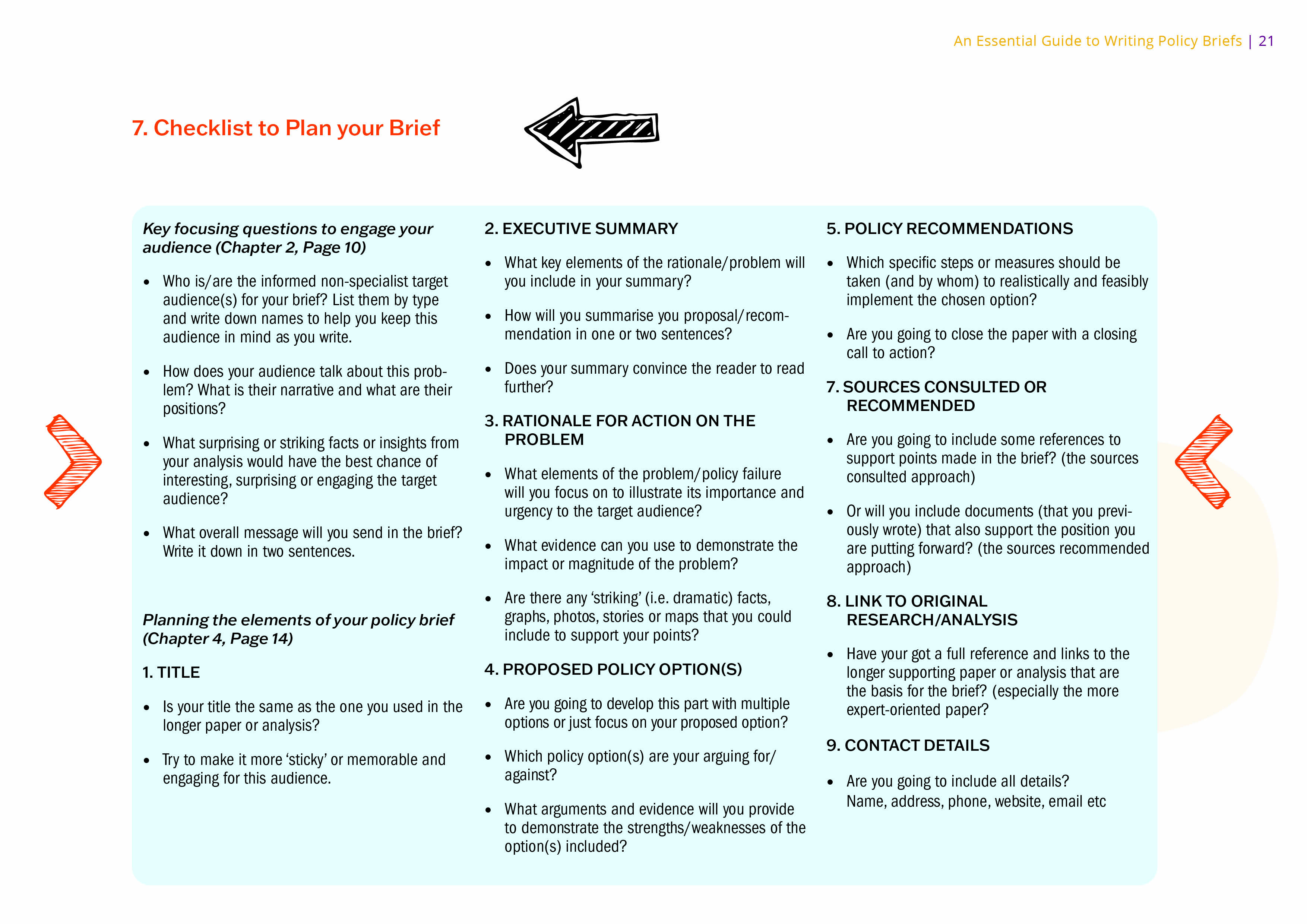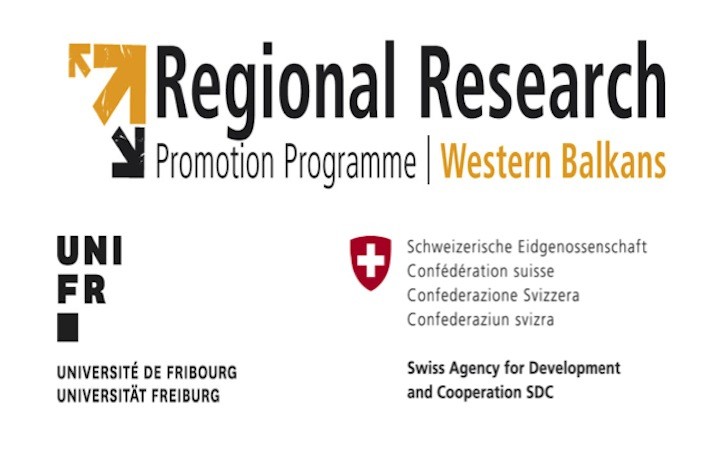Focus & Framing
The policy brief is a widely used type of policy paper produced to support an advocacy campaign. The intented audience for the brief is informed, non-experts, i.e. people who work regularly on the issue addressed in the brief, but will mostly never do research or read expert texts. Examples are decision makers, politicians, NGO workers, and journalists1 . This circle of people is a highly important audience for most campaigns as they are often decision makers and opinion leaders.

Policy Brief - Key Features
- Targets a non-expert, but informed audience (e.g. decision-makers, NGO people, journalists, bureaucrats)
- Audience-driven: Specific policy message designed to convince key stakeholders
- Used as an advocacy tool to support activities such as lobbying, presentations and press conferences
- Only includes the key findings from primary research (i.e. the tip of the iceberg)
- Must be very clear and simple
- 4 to 7/8 pages
The policy brief is commonly used as one tool in an advocacy campaign and normally needs to be used alongside other advocacy tools, e.g. a policy study, meetings, social media. Being such a short paper, it is not normally enough on its own to convince an audience to act on the proposals put forward; rather the more realistic aim is for people to be interested and want to find out more about the analysis (contained for example, in a longer policy study).
These resources have been developed through a decade of supporting thousands of researchers and advocates to engage better in policy advocacy campaigns. They are developed using 'genre analysis' methodology which means that we analyse multiple samples of each type of advocacy tool and the way others describe the tool to come up with a shared understanding of the focus and construction of these tools, i.e. the guidance is descriptive, not prescriptive. Our training workshops on policy paper writing and policy advocacy also build capacity in policy brief writing.
Resources
Policy Brief Resources
- Essential Guide to Policy Brief Writing - This is our core resource on policy brief writing and covers the focus, structural elements, comparison to other types of policy papers, lessons for policy brief writers, a writing checklist and 2 samples. Enjoy!
- Policy Brief Guidelines - This short reading provides more detail on the focus, usage and structural elements of the policy brief. It also answers questions that often come up around the policy brief, such as: Isn't the brief just a summary of a longer study?
- Policy Brief Outline Worksheet - This downloadable Word document provides a framework in which to start developing the parts of your brief. To understand what's behind each section, refer to the Policy Brief Descriptor.
Policy Brief Samples
These are three policy brief samples we have used in our trainings and illustrate three different approaches to policy briefs. The first is more advocacy oriented, the second more research reporting and the third, a more opinion editorial type.
- Becirovic, Azra, Amer Demirovic, and Rusmir Sabeta (2010) The Final Step in Reforming the Judiciary: Disposition of All Cases in Reasonable Time. Policy Development Fellowship Program, Open Society Foundations, Bosnia.
- Poverty Reduction and Environmental Management (2005) Herder Communities in Mongolia’s Free Market Era.
- Carnegie Endowment for International Peace (2002) Democratic Mirage in the Middle East.
Further Readings
The first is our policy writing manual to give more background and the second is our older description of the Brief (that has been widely used by many organisations). The third reading is focused on the use of briefs in research advocacy.
- Young, Eoin & Lisa Quinn (2002) Writing Effective Public Policy Papers. Budapest: Local Government Initiative/Open Society Institute.
- Nicola Jones and Cora Walsh (2008) Policy briefs as a communication tool for development research. Overseas Development Institute - Background Note
This page was developed as part of the Policy Bridging Initiative, a joint ICPA project with the Regional Research Promotion Programme, University of Fribourg and Swiss Agency for Development and Co-operation - SDC

- 1Of course, you can meet decision makers, politicians, NGO workers, journalists who are experts, but basically in most campaigns, this is the circle of people who depend on getting expert input from others.